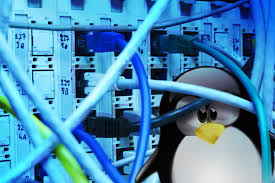Docker
The future of the Operating System - LinuxCon 2015 keynote
- Greg Duffy
- Fri, Jun 5, 2015

The following was given as a keynote at LinuxCon + CloudOpen Japan 2015.
There is also some great history in the linked slideshow and also a discussion of how things have evolved over the years to the point where we are at now where there is some serious disruption underway. Docker is also given great wraps as a way to move to the next evolution step in distributing and running applications.
To quote: "Linux has become the foundation for infrastructure everywhere as it defined application portability from the desktop to the phone and from to the data center to the cloud. As applications become increasingly distributed in nature, the Docker platform serves as the cornerstone of Linux’s evolution solidifying the dominance of Linux today and into tomorrow."
Read more at the spf13.com web site: http://spf13.com/presentation/the-future-of-the-os-linuxcon-2015-keynote/
Virtualization
- Greg Duffy
- Sat, May 2, 2015

In computing, virtualization refers to the act of creating a virtual (rather than actual) version of something, including virtual computer hardware platforms, operating systems, storage devices, and computer network resources.
Different types of hardware virtualization include:
-
Full virtualization – almost complete simulation of the actual hardware to allow software, which typically consists of a guest operating system, to run unmodified.
-
Partial virtualization – some but not all of the target environment attributes are simulated. As a result, some guest programs may need modifications to run in such virtual environments.
-
Paravirtualization – a hardware environment is not simulated; however, the guest programs are executed in their own isolated domains, as if they are running on a separate system. Guest programs need to be specifically modified to run in this environment.
In addition to the traditional Virtualization platforms such as VMware, HyperV, Xen and KVM, we also have expertise in the latest craze, containerisation. This is best exemplified by Docker but also exists in a very compelling form on the SmartOS platform.
Bookmark
Popular Tags
© ByteBack Group 2015. Privacy Policy | Terms of Service